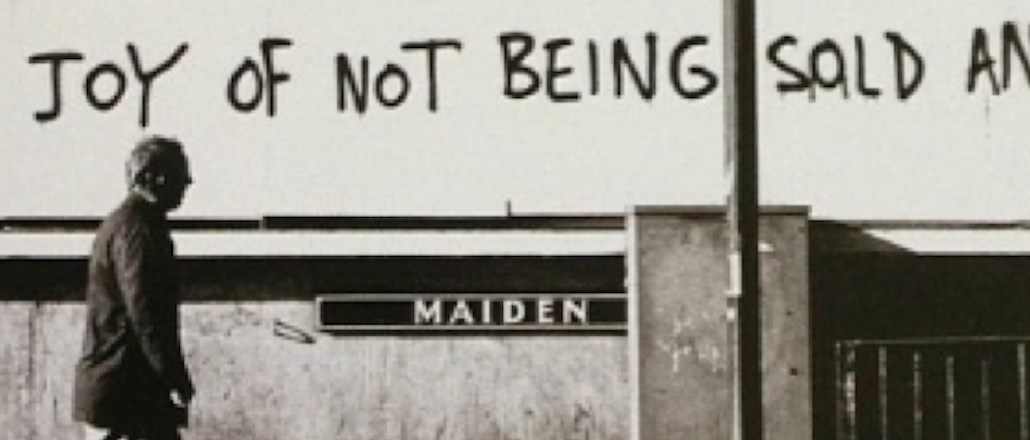
Mark Duffy has written the Copyranter blog for 10 years and is a freelancing copywriter with 20-plus years of experience. His hockey wrist shot is better than yours.
The Internet has killed the agency star.
There have been plenty of recent posts declaring that “traditional” advertising is dying or dead. But most of them were wishful-thinking pieces written by digital businesspeople benefiting financially from its demise.
This guy (warning: buzzwords out the wazoo) says it’s dead because “digital” has lowered the barrier “to create quality content and clients (are) amenable to hearing ideas from anyone.”
This guy (again, warning: buzzword barrage) says, “… the reason is simple: Consumers want, and expect, to be heard.”
Ahead of the curve, Wired in 1994 asked, “Is Advertising Dead?” In the article, the writer predicted that during the 2015 Super Bowl, you would be given a choice as to what commercials you wanted to watch, and then computers aided by satellites would instantly create a customized spot set right in your neighborhood: a bit over-ambitious, but not that far from the truth, a truth that is just a few years away.
Dan Wieden, the de facto spokesperson for traditional advertising says that the digital revolution “will transform us or render us inert.”
At this point, “inert” is winning.
Big-agency profits are dropping. This will continue and accelerate in the next five years. Digital “content” spending continues to rise sharply. At the same time, ad blocking is also rising exponentially. It’s the end of the advertising world as we know it: how do we feel?
Oh, the big agencies are half-assedly trying to stay relevant by haphazardly hiring “digital native” creatives. And these young writers and designers are subsequently walking right back out the revolving doors when they discover that these agencies headed by old white men are completely clueless. The good ones are then eagerly gobbled up by digital shops and in-house creative studios.
And these digital shops and studios keep telling us that millennials don’t want to be “sold” product benefits; they want brands to be less “brandy.” Brands need to create “human” “engaging” content without worrying about whether it increases revenue (WHAT?) because Gen Y is too savvy to be pitched to.
Therefore, more and more, what’s being created is — not “ads” — but films, docuseries, events, journalism-vertising, crowdsourced stories, etc. “Authentic storytelling” is the new image advertising. Here we are now: entertain us (without selling us). And the digital agencies are very eager to produce this content — because it’s easy to create ads that don’t sell.
Many brands are all-in on this non-selling “authentic” movement, because they are getting millions of views (fraudulent views, shhh).
Authentic storytelling is not a new thing. This classic DDB VW commercial from 1964 was authentic, entertaining and — look at that — sold the Hell out of the car.
But producing content that’s authentic, entertaining, informative and sells is difficult, and it takes time. And this generation greatly dislikes things that are hard and time-consuming.
What’s an old-school creative to do then? Well, you still have the mystical “Big Idea” phenomenon in your quiver — but good luck finding clients willing to wait for it, pay for it and, most importantly, believe in it.
Creative directors? You’re as good as dead, too. You better get yourself a back-up plan, quickly. Maybe create a Big Idea app?
More in Marketing

YouTube’s upmarket TV push still runs on mid-funnel DNA
YouTube is balancing wanting to be premium TV, the short-form powerhouse and a creator economy engine all at once.

Digiday ranks the best and worst Super Bowl 2026 ads
Now that the dust has settled, it’s time to reflect on the best and worst commercials from Super Bowl 2026.

In the age of AI content, The Super Bowl felt old-fashioned
The Super Bowl is one of the last places where brands are reminded that cultural likeness is easy but shared experience is earned.






